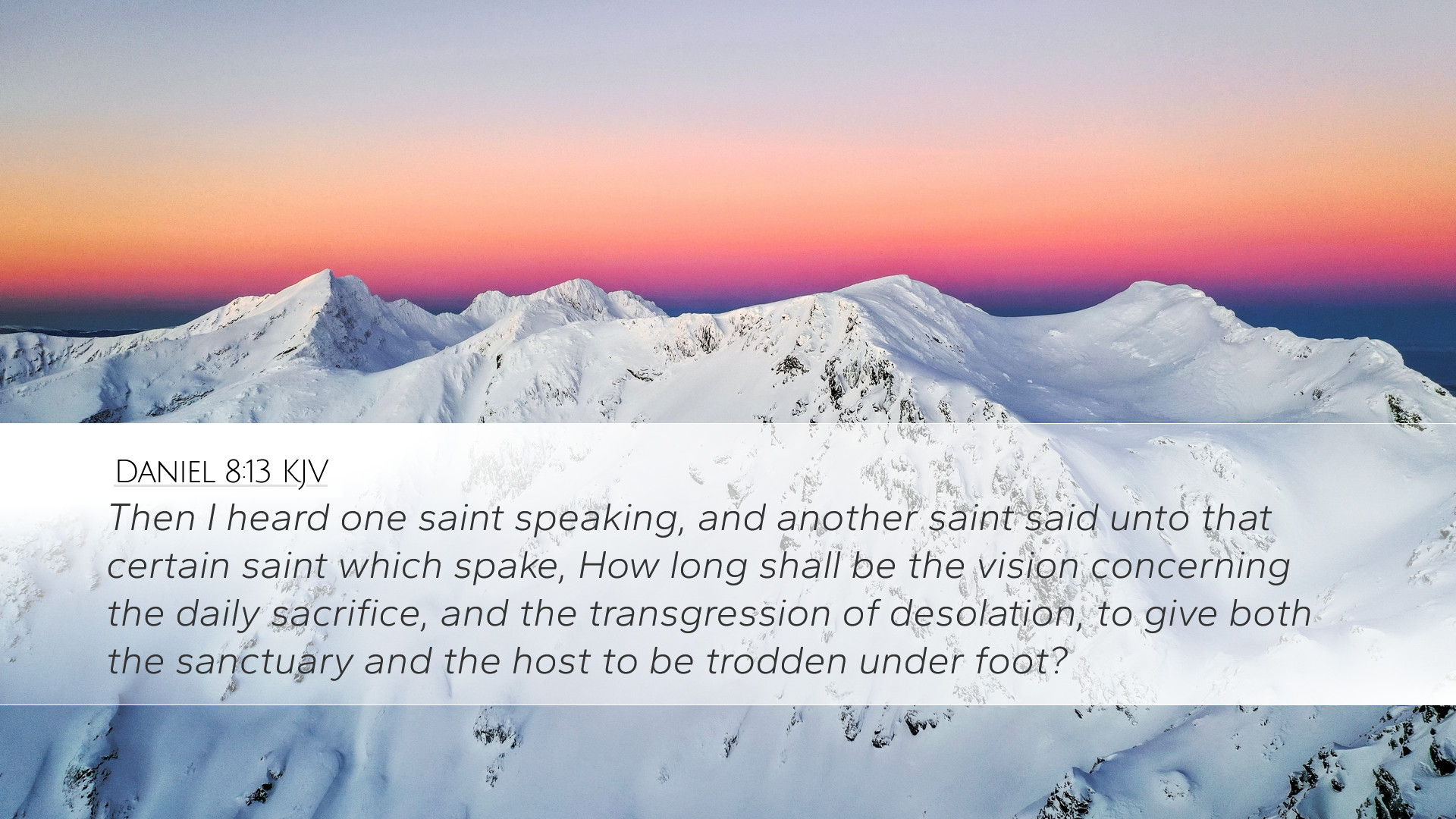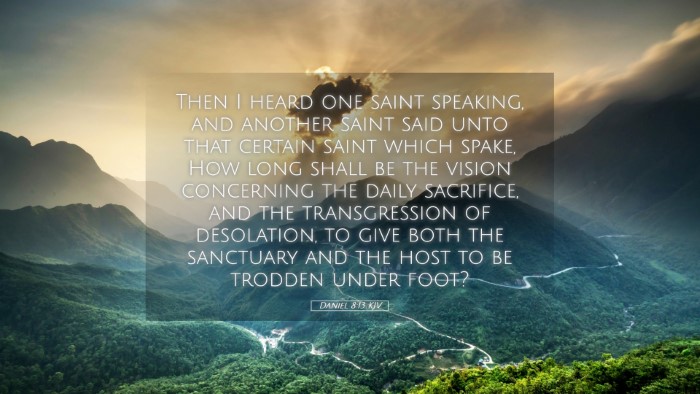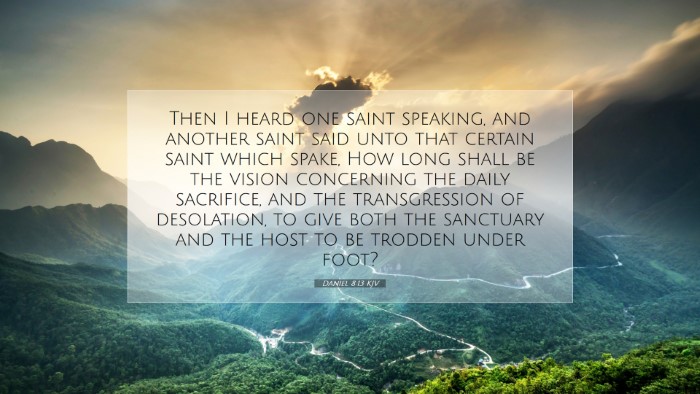Commentary on Daniel 8:13
Daniel 8:13 states, "Then I heard a holy one speaking, and another holy one said to that certain one who was speaking, How long will the vision be, concerning the daily sacrifices and the transgression of desolation, the giving of both the sanctuary and the host to be trampled underfoot?" This verse raises significant theological questions regarding the duration and implications of the visions that Daniel receives. This passage has spurred extensive commentary and exegesis throughout the ages, particularly concerning its eschatological implications.
Contextual Background
The Book of Daniel is generally divided into two sections: the first part consists of narratives detailing the historical experiences of Daniel and his companions in Babylon, while the latter portion contains apocalyptic visions. Understanding Daniel 8 requires contextual knowledge, particularly of the visions that precede it in chapter 7 and those that follow.
Exegesis of Daniel 8:13
Holy Beings Speaking: The dialogue between holy figures in Daniel 8:13 marks a notable aspect of prophetic literature. Matthew Henry underscores the significance of divine communication in this verse, suggesting that the "holy one" represents a celestial being who serves as an intermediary in conveying God's messages to humanity.
Questions of Duration: The inquiry regarding the duration of the vision indicates a concern for the timeline of suffering and judgment. Albert Barnes interprets this as highlighting the seriousness of the events portrayed, as well as a longing for understanding among heavenly beings about the unfolding of God's plan.
Transgression of Desolation: The term employed here, "transgression of desolation," has been extensively debated among theologians. Adam Clarke posits that this phrase points to an abomination that causes desolation, likely alluding to the desecration of the Temple, which is later referenced in the Gospels (e.g., Matthew 24:15). Clarke emphasizes that understanding this transgressive act is crucial to grasping the broader eschatological message of Daniel.
Theological Implications
The exchange that occurs in Daniel 8:13 raises profound theological themes: the sovereignty of God over historical events and the assurance of ultimate justice for His people. As pastors and scholars reflect upon this verse, they are reminded of God's providences manifesting through trials and tribulations.
Divine Timing: The question, "How long?" embodies a universal human query during times of distress. Matthew Henry elucidates that it reflects a longing for divine intervention, a theme pervasive throughout Scripture. Believers are encouraged to trust God’s timing, even when circumstances appear dire.
Historical and Prophetic Context
This passage also has historical roots, reflecting on the events post the Babylonian exile and leading into the Maccabean period. Matthew Henry notes that the verses leading to 8:13 foretell the persecution suffered by the Jews and the necessity for their perseverance and faithfulness.
Prophetic Significance: The focus on the "daily sacrifices" indicates the central place worship has in the Jewish faith and how its interruption symbolizes a profound spiritual and national crisis. Albert Barnes explains that this interruption foreshadows both historical and future fulfillments of tyranny and oppression faced by God's people.
Reflection for Modern Believers
Daniel 8:13 can function as a source of hope amidst difficult circumstances. As pastors prepare messages around this passage, they can encourage congregants by emphasizing the long view of divine justice and the ultimate restoration promised by God. The unshaken faith of Daniel, even amidst intense scrutiny and persecution, serves as a model for contemporary believers who face trials.
Encouragement in Suffering: In modern application, the notion of being trampled underfoot can resonate with the experiences of Christians who face societal pressures and persecutions due to their faith. Adam Clarke advises that the content of Daniel's vision illustrates God's continued presence and the inevitability of vindication for those who remain steadfast.
Conclusion
Daniel 8:13 encapsulates the profound questions of suffering, justice, and divine timing within its concise dialogue. Public domain commentaries by Matthew Henry, Albert Barnes, and Adam Clarke collectively emphasize the enduring relevance of this passage in providing guidance, insight, and comfort to those grappling with the complexities of faith in times of persecution. For pastors, students, theologians, and Bible scholars, engaging deeply with this verse offers not only an academic understanding but also an opportunity for spiritual growth and pastoral care.


